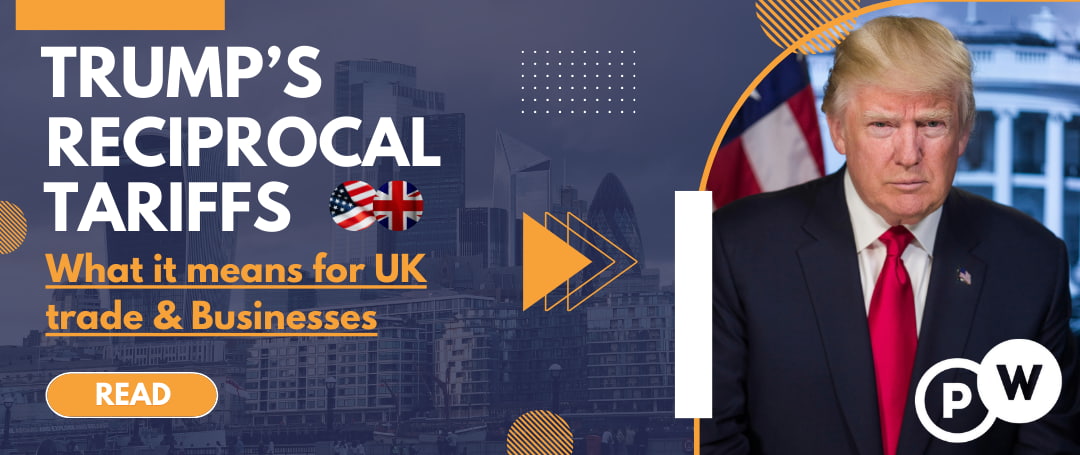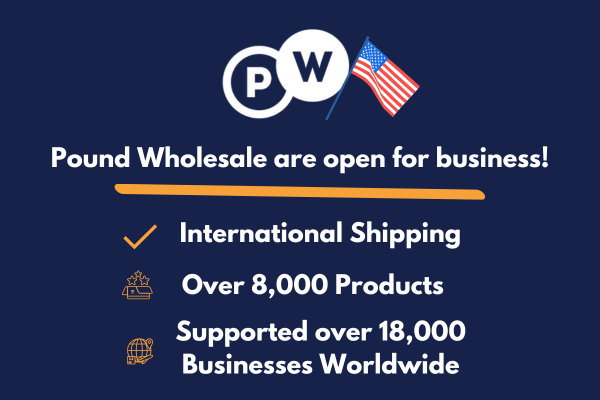
US President Donald Trump has announced widespread ‘reciprocal’ tariffs imposed on countries around the world, including the UK, Ireland & European Union, China and India.
President Trump has also imposed a universal 10% tariff on all imported foreign goods, in addition to the ‘reciprocal tariffs’ imposed on a few dozen countries. Trump says the new changes will elicit a ‘golden age’ in the US, claiming various countries have ‘cheated’ America.
Described as ‘liberation day’ by the US president, the EU has described it as ‘a major blow to the world economy’. An unprecedented moment in global trade, China has indicated its intention to retaliate, and many other key figures from countries have already reacted to Trump’s changes to US trade policy.
Predictably, Trump’s Tariffs have sent shockwaves around the world, with European Stock Markets joining global markets in a huge sell off, and the London FTSE 100 dropped sharply, falling 1.4% win the first few minutes of trading.
Trump’s ‘Reciprocal’ Tariffs
| Country | Tariff Rate |
| United Kingdom | 10% (baseline) |
| European Union | 20% |
| China | 54% (including earlier tariffs) |
| Japan | 24% |
| India | 26% |
| South Korea | 25% |
What it means for the UK
With economic impact already proliferating across markets all over the world, UK Prime Minster Kier Starmer has assured businesses that he will respond to Trump’s Tariffs with ‘cool and calm heads’, and has asserted that there are a range of levers available to the UK.
The latest escalation of the global trade war is likely to impact UK businesses, trade and consumers – but the question is, are the tariffs good, or bad for the UK?
Will Prices Go Up or Down?
The tariffs imposed by President Trump will be paid for by the enterprises that import goods in the US. According to the Clarissa Hahn, an economist at Oxford Economics, the initial rise of the prices will impact US consumers first, as American customers will likely incur the charges passed on by businesses.
However, Hahn has added that the UK could be affected once the measures take affect on the 5th of April.
The value of the pound and exchange rates, which determine the cost for UK businesses importing goods and raw materials from internal markets, could be affected if import costs rise, and costs are passed onto consumers.
Much will depend on whether the UK retaliates with tariffs of its own on US goods imported into the UK, as UK prices will likely rise if British businesses incur costs by imported American products.
Do The Trump Tariffs Present an Opportunity for UK Businesses?
Although Trump’s Reciprocal’ Tariffs have been described as a ‘lose-lose’ situation, and the UK hasn’t escaped the economic wrath of Donald Trump, do the changes present a golden opportunity for UK businesses?
The US is already the UK’s largest single export market, exporting a significant amount of services exported across the Atlantic. Although Britain is a key trading partner to Germany, France, Ireland, Netherlands and China, the US imports more from the UK than any other country.
All of the UK’s significant rivals for the US import market have been hit harder by Trump’s tariffs – European Union 20%, China 54% and Japan 24% respectively. Mexico and Canada, two of the USA’s biggest trading partners, aren’t affected by the latest tariffs, but are currently at 25%.
As of the 5th of April, US businesses will pay a lower tariff on goods and services imported from the UK than China, Japan, Mexico, Canada, Ireland and the European Union, which includes economic heavyweights such as Germany, France, Spain and Italy.
With the UK’s lower tariffs making goods and services cheaper for US businesses, many enterprises in Great Britain will be gearing up for transactions and establishing new relationships with their American counterparts.
The price advantage could create an increasing demand for UK products, allowing UK businesses and exporters to capture a larger share of the US market.
According to the London Evening Standard, the UK exported £60.4 billion of goods to the US in 2023. Machinery and transport accounted for the largest share, ahead of chemicals and materials.
From specialised manufacturing to engineering, automotive components, food and drink and general goods, UK businesses have the opportunity to offer superior pricing than many major existing US trading partners.
It’s very early days, and President Trump is prone to unexpected policies and changes which can rapidly affect global markets, but there are certainly reasons for UK businesses to be optimistic.
How Pound Wholesale Can Support Businesses in the USA
Pound Wholesale has vast experience exporting goods internationally, including to the United States of America. With over 8,000 products, from toys, cleaning and baby supplies to DIY, kitchenware, electricals and household goods, Pound Wholesale can help enterprising American businesses navigate through current uncertainty amid the global trade war. If you needed a greater incentive, Pound Wholesale are currently processing orders and shipping faster than ever!
If you’re looking to offer your American customer superior value with potentially better gross profits, get started with the UK’s leading wholesaler today!


